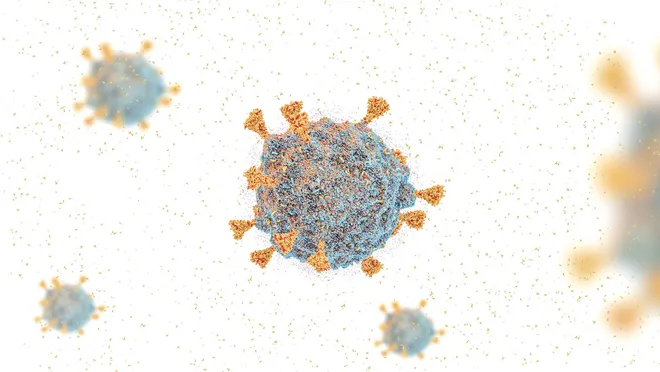MICHIGAN — State health authorities are urging residents to minimize their risks of catching COVID-19 and prevent its spread at spring gatherings, including proms, graduations and other holidays, as cases are expected to rise with warmer weather.
The Michigan Department of Health and Human Services (MDHHS) is asking people to make sure they are up-to-date on vaccines.
The MDHHS says the BA.2 subvariant of Omicron is expected to continue causing a rise in COVID-19 cases in the upcoming weeks; southeast Michigan is already seeing an increase in cases.
But the increase is not unexpected as the BA.2 subvariant of Omicron has shown to be more transmissible than previous strains.
While cases may increase, hospitalizations and mortality are not expected to rise significantly, given levels of vaccination, boosters and immunity from the recent Omicron spike.
Michigan’s residents are encouraged to be aware of the increased transmission as they go about their daily lives and make personal decisions on masking and other ways to protect themselves from COVID-19.
Michigan remains in the “post-surge recovery phase” from this winter’s spine earlier this year. However, public health officials continue to monitor the situation closely and will notify the public if anything changes.
Studies show that after getting vaccinated against COVID-19, protection and the ability to prevent infection against COVID-19 may decrease over time – so most people may need one or more booster doses.
Pfizer recently said it will soon ask the U.S. Food and Drug Administration to authorize boosters shot for kids ages 5 to 11.
In addition, people who are moderately or severely immunocompromised should receive an additional primary dose. Children aged 5 through 17 years who are moderately or severely immunocompromised should get an additional primary dose of the Pfizer vaccine 28 days after receiving their last dose in the two-dose Pfizer vaccine primary series, the MDHHS said.
The MDHHS continues to recommend the use of layered mitigation strategies for Michiganders:
- Get vaccinated against COVID-19. Michiganders should get up to date on their COVID-19 vaccine. Learn more about vaccines and when you’re up to date at Michigan.gov/COVIDVaccine.
- Learn about therapeutics. Individuals are encouraged to talk to their doctor about whether they meet eligibility criteria and should get antibody or antiviral treatment if they test positive for COVID-19.
- Isolate and quarantine if needed. Staying away from others when you are sick or were recently exposed to COVID-19 are important tools to preventing further spread of the virus.
- Get tested if you are exposed or have symptoms. Anyone with signs or symptoms of COVID-19 should get tested regardless of vaccination status or prior infection. If you get tested because you have symptoms or were potentially exposed to the virus, you should stay away from others while you wait for the test result. Find a test site at Michigan.gov/COVIDTest.
- Take additional steps to protect yourself and others. Protect yourself from COVID-19 by understanding levels of risk, practicing good hygiene and hand washing, staying home when sick and staying up to date with vaccinations. Know your risk; know that others may have a risk different from yours. Respect the choice.
- Get a free mask. Free KN95 masks are being distributed by community organizations, including local MDHHS offices, health departments and Area Agency on Aging offices. Residents who want masks can obtain masks from partner agencies across the state. Michiganders are asked to refer to partner websites or social media sites to find out about mask availability as opposed to calling sites.
“While we wish we could avoid these types of increases in cases, the good news is we have excellent, effective tools to travel safely and gather with loved ones and prevent severe outcomes from COVID-19,” said Dr. Natasha Bagdasarian, MDHHS chief medical executive.
Mask and vaccine mandates have been a politicized issue across the country. On Monday, a federal judge ruled against the Biden administration’s continued mask mandate on public transportation, leading major airlines to stop requiring masks on planes. The CDC continues to recommend people mask up, especially during an increase in community spread.
Michigan currently stands at about 10,000 weekly cases.
Together, BA.2 and its BA.2.12.1 sub-variant dominate cases in the U.S, with BA.2 still making up a vast majority of the cases. The new sub-variant is 23 to 27 percent more transmissible than BA.2, which itself was more transmissible than the original Omicron variant. But like the original Omicron, there’s currently no evidence to suggest that BA.2.12.1 causes more severe disease than previous mutations like Delta.






Leave a Reply